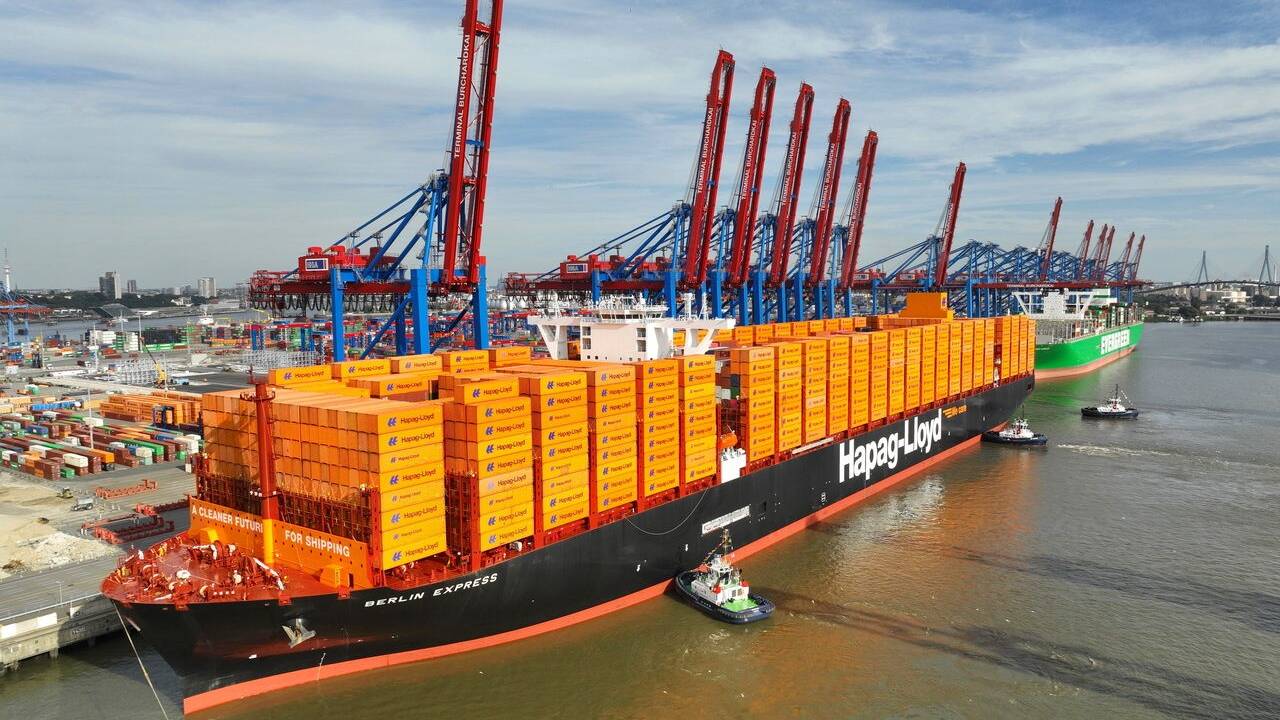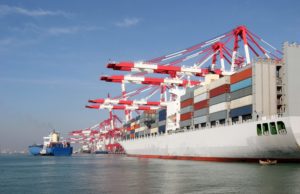In response to the potential risk of strikes at U.S. East Coast and Gulf ports some liner companies have announced related surcharges. Meanwhile, Denmark’s A.P. Moller-Maersk has urged customers to pick up their laden containers and return empty containers at U.S. East and Gulf Coast ports before January 15. “This proactive measure will help mitigate any potential disruptions at the terminals,” it said.
Hapag-Lloyd announced on December 24 that it would impose a Work Disruption Surcharge (WDS) and a Work Interruption Destination Surcharge (WID).
In the event of a strike, the surcharges will come into effect on January 20, 2025, to “manage the potential impact of ongoing challenges at U.S. East Coast and Gulf ports.”
However, the container liner stressed that the surcharge will only be applied if disruptions occur and will be waived if no disruptions take place.
In addition, the company said that it will not apply to containers already on the water or gated in before January 20, 2025, and will only affect cargo gated in on or after this date.
The company outlined the details of the WDS/WID surcharges to its official website.
“This surcharge covers additional costs from labor disruptions, strikes, slowdowns, unrest, congestion, and other unforeseen events that may delay operations and incur extra handling, storage, and feeder service costs,” Hapag-Lloyd writes in a customer advisory.
NorthStandard – marine insurer and one of the largest P&I clubs in the International Group – emphasised in a news alert that ongoing labour negotiations between the International Longshoremen’s Association (ILA) and the U.S. Maritime Alliance (USMX) could significantly impact port operations along the East and Gulf Coasts.
“The conditional agreement on wages is set to expire on January 15. If no agreement is reached by that date, a coast-wide strike on January 16 is possible. However, the negotiations have had no new developments since our last communication,” Denmark’s A.P. Moller – Maersk said in a customer advisory posted Tuesday.
In early October, the largest union of maritime workers in North America ILA and USMX, an alliance of container carriers, direct employers, and port associations serving the East and Gulf Coasts of the U.S., reached a tentative agreement on wages and extended the Master Contract until January 15, 2025.
Both parties agreed in October to return to the bargaining table to negotiate all other outstanding issues.
The deal ended the biggest work stoppage of its kind in nearly half a century, which blocked unloading of container ships from Maine to Texas and threatened shortages in some imported items, triggering a backlog of anchored ships outside major ports.
The port strike was still in its early days, but it would have had broad ramifications for the US economy the longer it continued.
The two sides, ILA and USMX, came recently to the table prepared for four days of intensive bargaining to secure a contract.
For the first day and a half, discussions were productive, and both sides engaged in addressing serious issues.
However, talks broke down late on Tuesday, November 12, the union revealed. They also failed to make significant progress on the critical issue of automation.
The U.S. President-elect Donald J. Trump backed ILA Longshore Workers against automation and semi-automation at a meeting held recently in Florida with the two top leaders of the International Longshoremen’s Association (ILA).
Trump met with the two top leaders of the International Longshoremen’s Association, international president Harold J. Daggett and executive vice president Dennis A. Daggett, to discuss the union’s negotiations with the United States Maritime Alliance, at a two-hour meeting at Mar-A-Lago in Palm Beach, Florida.
The soon-to-be inaugurated 47th president of the United States sent a lengthy message out on Truth Social, following the meeting with the ILA leadership, expressing his support for ILA Longshore Workers, and taking a stand against the automation.
ILA executive vice president Dennis Daggett shared the ILA’s concern that America’s national security is threatened from cyber-attacks on automated equipment from China and other U.S. adversaries, an issue president Trump indicated was of great concern to him and his advisors.
“As the January 15 deadline approaches, the risk of another strike looms, which could disrupt supply chains and affect the availability of goods. Both parties are continuing their discussions in an effort to avert further disruptions,” NorthStandard’s correspondent said last week.



